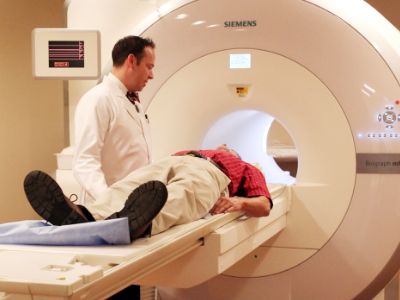
Ovarian cancer develops when cells in your ovaries begin to grow abnormally. Every cell has its own life cycle and is capable of programmed cell death if it no longer functions well or is beyond its useful life. However, cells sometimes start to grow rapidly or no longer die when they should. Tumors develop as a result of this abnormal growth of cells. A tumor can either be cancerous or not cancerous.
What are the Symptoms of Ovarian Cancer?

In most cases, ovarian cancer does not show any symptoms for some time after it develops, becomes quite large, and spreads throughout the abdomen. When you experience symptoms, they can include:
- An abdominal or pelvic pain, discomfort, or bloating.
- Losing your appetite, getting full early, and experiencing changes in your eating habits. You may experience bloating and belching, sometimes even stomach pain.
- Your bowel movements are changed, including diarrhea, constipation, or abnormal bleeding.
- An increase in the size of your abdomen, or feeling any unusual lumps.
- Having urinary frequency or urinary urgency.
Typical Pain Location of Ovarian Cancer
Symptoms of ovarian cancer may appear in the early stages, but they often do not appear until later. One of the most common ovarian cancer symptoms is pain. It is usually felt in the stomach, side, or back. The pain may come along with a distended and hard abdomen, abdominal mass, abnormal vaginal bleeding, and urinary symptoms.
Does Ovarian Cancer Grow Quickly?
The early stages of ovarian cancer can progress quickly to advanced stages within a year. With the most common form, malignant epithelial carcinoma, the cancer cells can grow out of control quickly and spread in weeks or months.
Diagnosing Ovarian Cancer

- If your doctor suspects ovarian cancer, he/she may recommend the following tests:
- Pelvic exam. During a pelvic exam, your doctor inserts gloved fingers into your vagina and simultaneously presses a hand on your abdomen to feel your pelvic organs.
- Imaging tests. Tests, such as ultrasound or CT scans of your abdomen and pelvis can determine the size, shape, and structure of your ovaries.
- Blood tests. Blood tests and organ function tests can help determine your overall health. Your doctor might also test your blood for tumor markers that indicate ovarian cancer.
- Genetic testing. Your doctor may recommend testing a sample of your blood to look for gene changes that increase the risk of ovarian cancer.
Is Ovarian Cancer Treatable?
Ovarian cancer is considered a silent killer with few if any, early symptoms. However, it turns out ovarian cancer may not be as stealthy as we once thought. If detected at an early stage, it is treatable with surgery, chemotherapy, targeted therapy, hormone therapy, and immunotherapy. If you or a family member are showing symptoms, ensure to seek medical help. You can also help save others by spreading awareness today.









